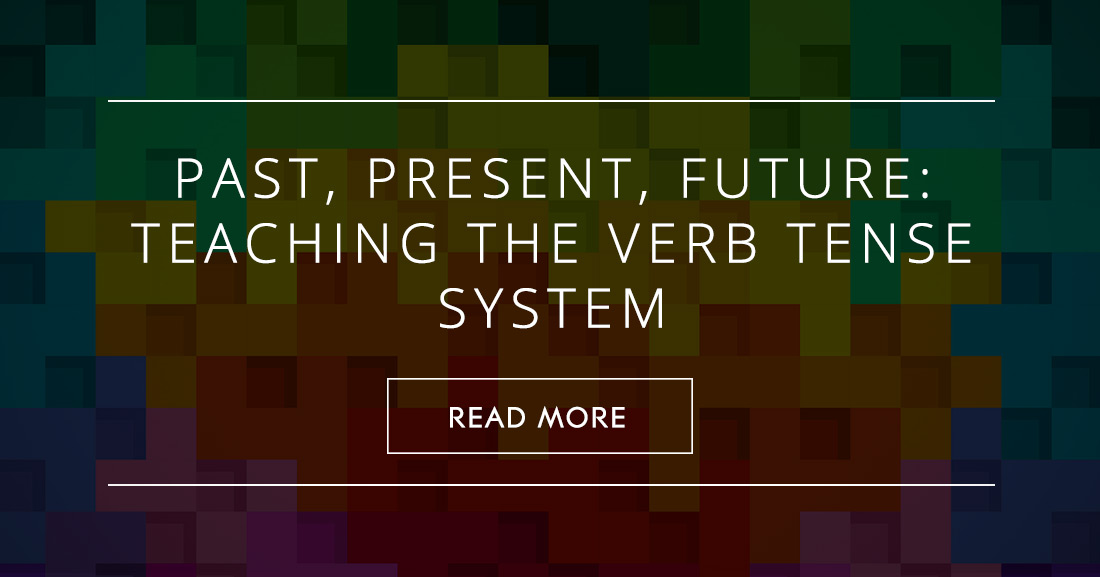Past, Present, Future: Teaching the Verb Tense System

This article deals with teaching grammar, the tense forms in particular, from the point of view of of their contrast in meaning with the native tense forms. It concentrates on the differences of languages in teaching grammar and gives some advice on overcoming difficulties.
As my experience shows, when teaching English it’s important to stress the difference between English and English learner’s verbal systems – mostly as the difference between various ways of thinking and ways of reality perception. In this case the learner of English stops asking such rather stupid questions as “Why don’t they (the English) have just three tenses as we have in Russian?”
The table demonstrates the Simple, Continuous, Perfect and Perfect Continuous forms as groups of tenses showing various interpretations of processes expressed by verbs. The table also presents the main meaning characteristic of each group of tense forms.
Thus, the Simple forms are considered to present facts, the Continuous forms denote activities at a particular point or period of time. The Perfect forms are the most complex for the Russians because we are not very good at meeting deadlines. So, it’s rather hard to realize that the general meaning of the Perfect is the action completed by the so-called present moment, or some moment in the past or future. And the Perfect Continuous forms are associated with activities continuing to take place in the present, past or future after being started some time before.
Only after the tense groups’ general meaning are understood – you can check it while making your students translate some trivial sentences into their native language – should you pass over to the peculiarities of meaning and use of each tense form.
I’m sure the table presenting tense form formulas and their general meanings helps to realize the way of process description specific of the English and facilitates its perception as it is clear and systemic.